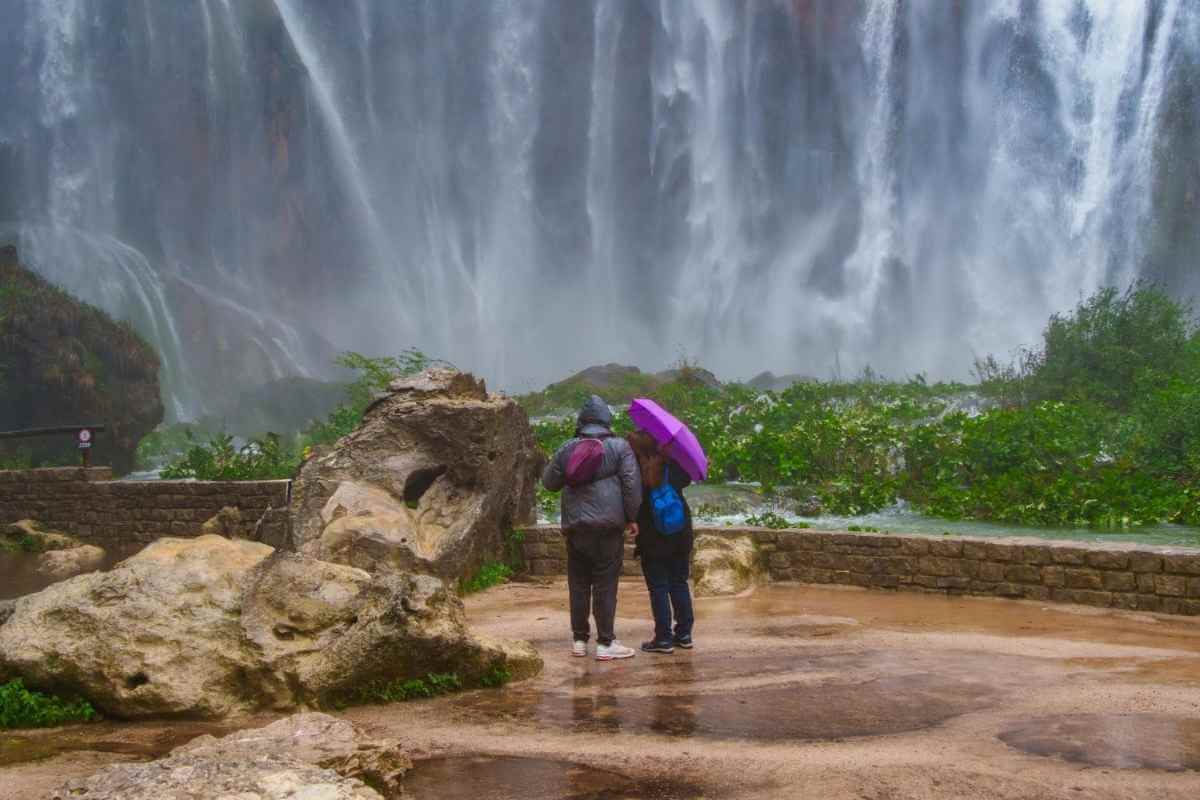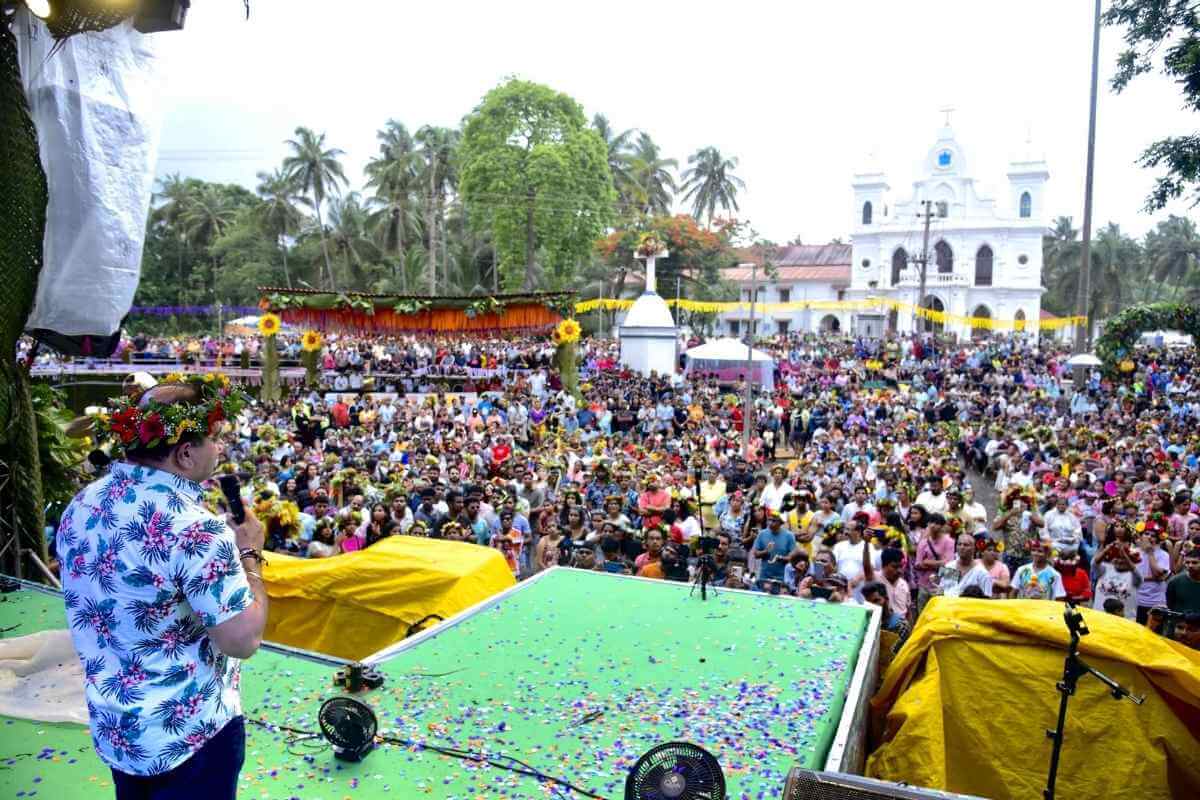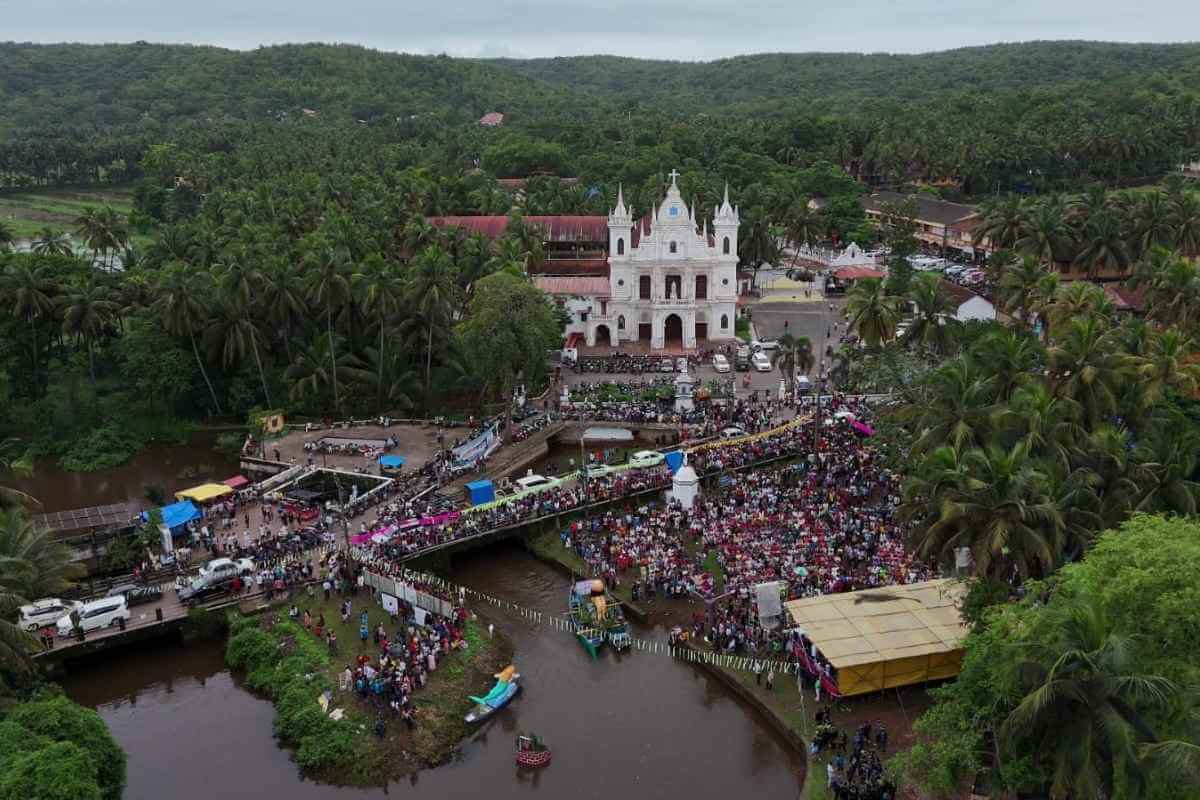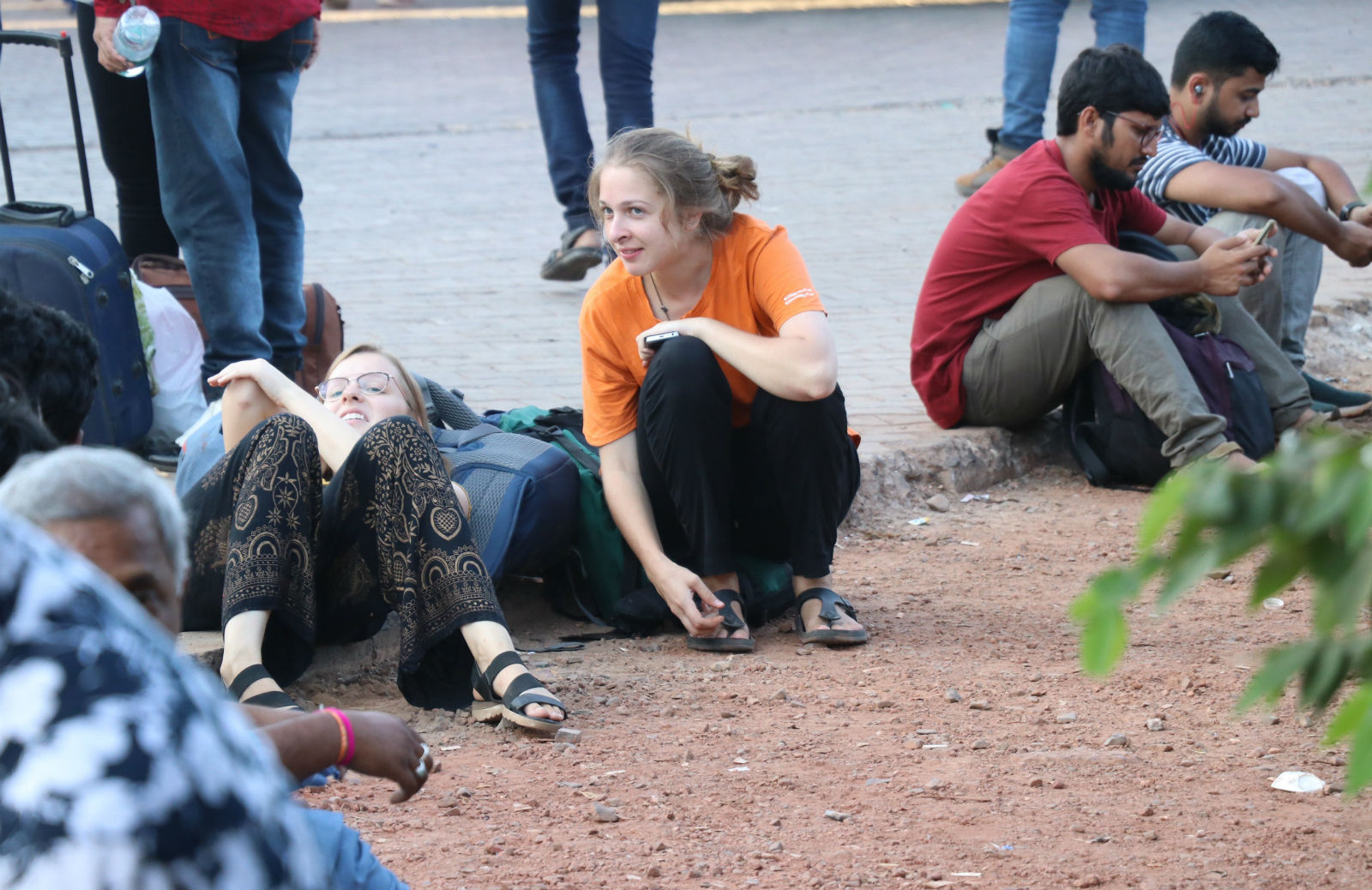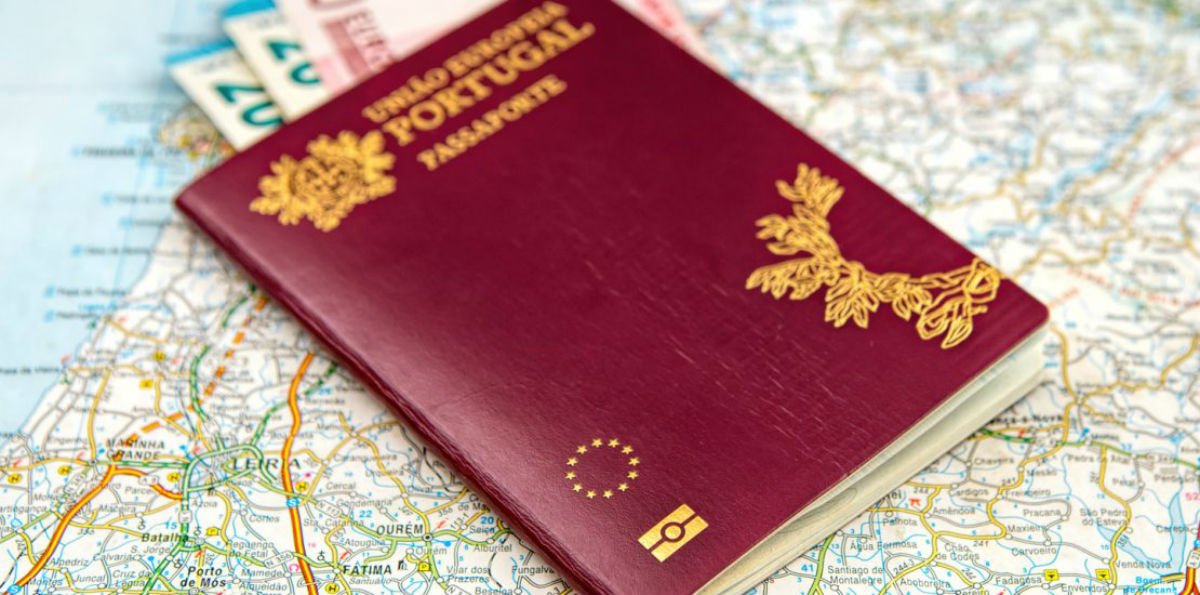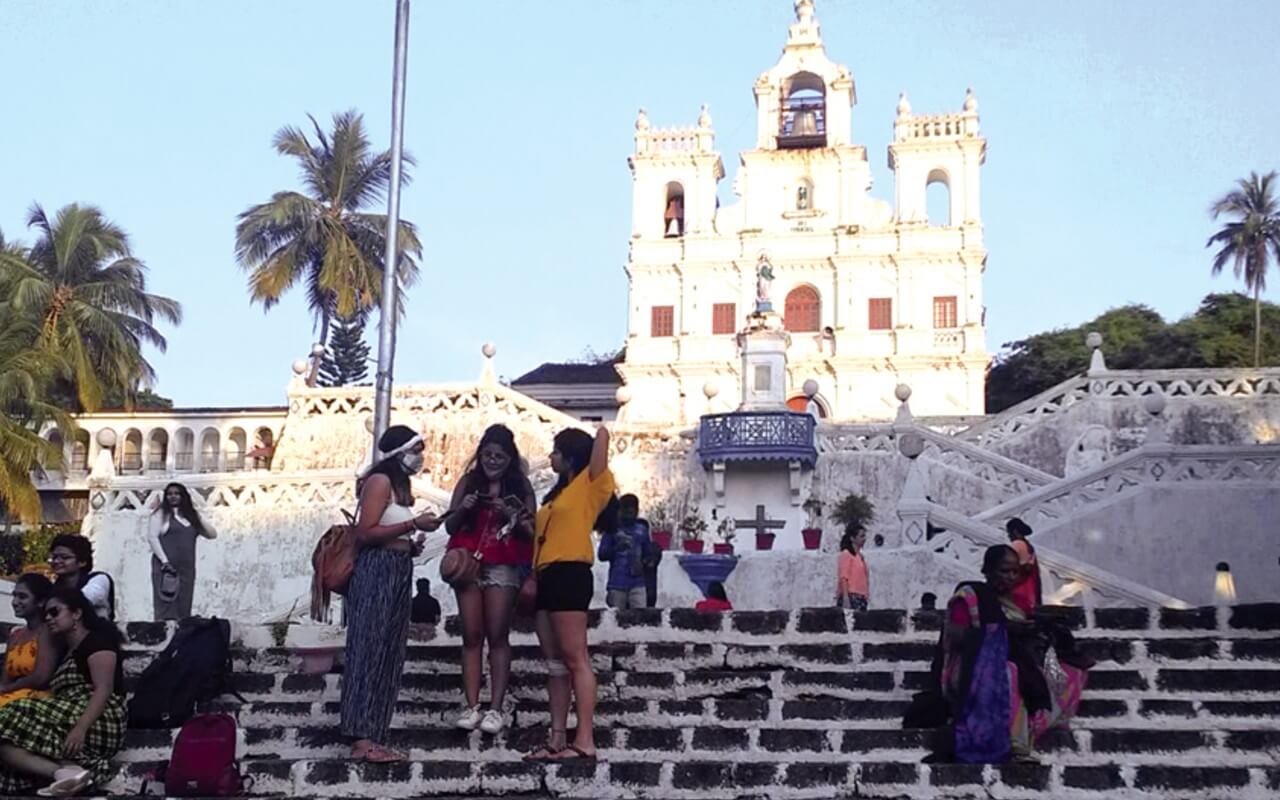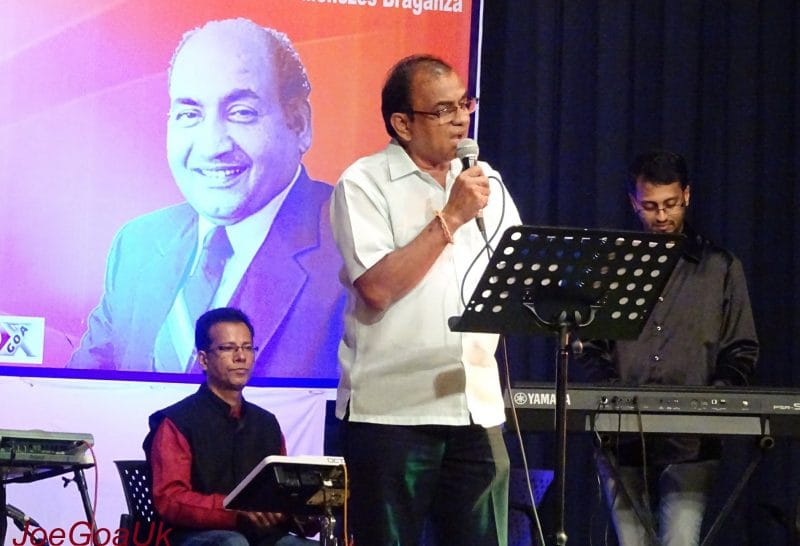November 9th will be going down into the history (as 9/11 Demonetisation Day) once again with one of the most important notifications issued by the Prime Minister of India Shri Narendra Modi Ji on the currency demonetisation at previous night at 8pm. This is perhaps the second time after 1978 that notes of 1000 were banned in Indian by the top most powerful person in Indian political arena. The news spread like a fire in the media at around 8pm on 8th November and the social media became a platform for spreading numerous rumors on demonetization and filled up with the updates on demonetisation making its mockery of the system. What is this demonetization of the currency is all about and how much it affected to our tiny state Goa? Incredible Goa has made a comprehensive report on the demonisation and its effects on Goa.
Narendra Modi had promised 125 crores Indian that he will bring the black money back into India from the Swiss bank and every Indian will have 15 Lakh rupees in their account but nothing such happened and the Ban on the high-value currency of 1000 and 500 was announced by him on the national channel at 8pm. This ban came as a shocking surprise to everyone as it was sudden and it was announced by PM in the night stating that the notes will become illegal from the midnight. People had no opportunity to use it as an instrument of exchange as the vendors stopped accepting currency from 9pm onwards on same day despite the notification stated that the ban will begin from 12AM.
The next day morning embarked with chaos. The normal life was completely disrupted. People were running around to line up in front of the banks and ATMs which by then become completely empty and nonfunctional. Now the situation was, people had money but old currency which was not accepted by any vendors in the state. The Prime Minister made an announcement that, the essential commodities and service providers will have to accept the high-value notes until the 14th November but most of them i.e. Petrol Vendors, Medical Shops and even Hospitals stopped accepting the currency.
People had left with no options but to wait till either they get hold of a new currency which was not possible immediately since banks were expecting the new currency only by 11th of November and the withdrawal limit was set to only 2000 rupees per person per day which was very small. The entire system became completely paralyzed. Whoever had the currency of smaller denominations i.e. 100 and bellow, were able to do the transaction and purchase the essential goods required on the daily basis. The most affected section of the society was the daily wages workers who were left with no jobs and no money.
The ATM had become defunct in the state for the time being due to no currency. The only option left before the people was to get old high-value notes exchanged in the banks or nearby post offices with smaller denomination notes. One could witness the huge queue in front of banks and post offices. According to the reports published by the local daily, People were going crazy with the scarcity of the cash component. The life has become stagnant for two days due to non-availability of cash either through the banks or ATM. People began losing the patience which resulted in fights that caused minor injuries and damage to bank property, but yet the bank employees saw doing their job with the complete patience.
11th November was the first day after the tsunami of currency ban where the life was about to become normal as Banks promised to dispense some cash per person to make bring the life back to normal. The ATMs of most of the banks have not yet become operational, though it was promised by the bank authorities that the ATMs will start dispensing new note of 2000 rupees from 11th November but due to some technical problems and lack of cash the banks could not manage to do so. According to the sources, except the SBI, 18th June Road Branch, no other banks had an enough cash to take care of their customers need throughout the day. The ICICI pulled their shutters down by 5pm while HDFC left with no more cash to dispense by midday. One of the public sector banks disbursed around 1 crore by 3 pm. The sources had revealed that the banking staff of all the banks had really worked very hard to meet up with the existing demand of the customers. According to one customer, a lot of people were asking for the notes of 100 rupees denomination but banks could not manage to meet up with their demands due to limited cash reserves.
Unlike the locals, tourists in Goa were facing a tough time as banks were asking them to produce on original documents and many have carried only the photocopies of the documents with them. The Post offices in Goa were also run dry dispensing 54 lakh cash in one day that too within just three hours, said the sources. “The State Bank of India (SBI) had supplied the notes in the morning and it was over by 3 pm. We will be receiving another consignment on Friday morning that will be dispensed later in the day,” said the Postmaster Vinod Verma of GPO, Panaji.
Meanwhile the Chief Minister of Goa Shri. Laxmikant Parsekar told the media that, he had a meeting with the Bank Managers in the state and other government officials to ensure the smooth conduct of transaction in the banks. The government has completed all the administrative preparations, including maintenance of law and order situation, for facilitating the exchange of the now-obsolete Rs 500 and Rs 1,000 denomination notes, as well as depositing of such currency in various private, nationalized as well as co-operative banks in the state.
Chief Secretary R K Srivastava, state Director General of Police Muktesh Chander and secretary for finance Daulat Hawaldar were also present at the briefing. Speaking further, the Chief Minister said that the District Collectors, Deputy Collectors, and mamlatdars have been directed to assist the banks in the major financial exercise, as also told the police department to handle the law and order situation. “The government is also in contact with the Centre in connection with the particular exercise,” he noted.
Admitting that the people had to face inconvenience on the first day following demonetization of the currencies of two denominations, the Chief Minister said that customers faced some problems at the petrol pumps, as also the tourists, especially the domestic tourists had to leave the state. “However, this is a short-term botheration, and there would be no more trouble for the tourists visiting Goa, once the banks commence with the said transactions,” Parsekar stated, mentioning that there would be no dip in the tourism revenue in December, which is a peak month for tourist season in Goa. The Chief Minister further said that the decision of Prime Minister Narendra Modi to scrap the currency notes of Rs 500 and Rs 1,000 denomination would not only reduce inflation and increase the value of rupee but certainly help in providing a cleaner pre-assembly election scenario in the state.
The petrol pump was another place besides the grocery shops and supermarkets that have maximum crowd after the demonisation in the state of Goa. The petrol pumps in Goa had been asked to accept the old currency for some time till the situation comes under control but still few petrol pumps were not accepting the old 500 and 1000 rupees notes.
Besides the petrol pumps the only other outlet that was accepting the old high-value currency was the Goa Sahakar Bhandar (The Co-operative Society Outlet) and it had witnessed huge rush with people doing the purchase of more than 10,000 at a time to dispose of the old high-value currency. In the capital city, people have seen some of the elected representatives too doing the shopping, perhaps first time in the cooperative society. Everybody was interested in getting rid of high value currency since it has no value in the open market unless you deposit the same into the bank which becomes accountable.
Goa is the only place in India where people come to gamble and off-shore casinos are the best place for the same, but after the demonetization, even the casinos in Goa had got badly affected. The overall consideration is that people with lots of black money comes to play in casinos and black money is saturated in the form of 1000 and 500 notes which was banned by the government. One of the Goa-based traders from Delhi told the media on the promise of anonymity that, he had spent three hours in the casino.“The people left in a hurry and the few who were there kept answering calls from their families suggesting they leave the facility. It was pretty dead inside.” He believed that in the days ahead the number of gamblers would decrease unless there was clarity as to how the winnings would be handled.
One of the staff at the counter of Casino Deltin Jaqk said they were following regular procedures and had not been intimated of any change by the management. For anyone bringing in more than Rs 50,000 the pan card details had been made compulsory. At Deltin Royal, Fianna Fernandes the manager at the counter said payments were being accepted by credit card or in Rs 100 notes. With regards to winnings, she said a decision as to how the payment ought to be made would be taken by the gaming manager in the casino. Dhananjay Khanna who came to Goa along with his parents from Mumbai said they were aware of the announcement but since they wanted to just check the place out it did not make a difference. Jimit Shah and his wife from Mumbai were visiting the various casinos and intended to then decide if they wanted to go in. Jimit said, “Yes, I am keen but no one really knows how the winnings will be handled. Casino Pride was accepting payment only by card and the manager said they could be open only until midnight but that decision could change when the appointed hour arrived. The management had not communicated anything till late night.
The another section that was hit by the currency ban was the local transport operators. People had stopped traveling by bus and cabs due to unavailability of the cash component. The cabbies and bus operators stopped accepting the 1000 and 500 notes and they have no change of Rs. 2000 new notes. The tourist coming to Goa had maximum impact of this since the local could easily manage with the availably of their own conveyance but the tourists had no options. They cannot swap the credit card with the cab driver or bus operators and they could not make use of currency.
The most affected area was the North Goa and especially the Calangute beach. The tourist already landed in Goa were the major victim of the demonetization. The currency of 1000 and 500 become virtually useless and the replacement was not available across the counters yet due to which the many travelers had to encounter the difficulty in settling their lodging and food bills. “At a lot of places, hotels and restaurants have put up notices stating that payments in 500 and 1,000 notes will not be accepted. Many are accepting this currency only on the condition of the customer making purchases of equivalent values,” Prasad, a tourist from Baroda said.
According to the sources, the local vendors in the north Goa beach belts have started making the use of available opportunities to fleece the foreigner tourists in Goa. They started coaxing the foreigners to purchase the gifts and souvenirs in the return of lower denomination notes. Using the lack of computerisation to their advantage, these shop owners have also begun registering their current sales under previous records. “Each day, we witness tourists dashing from one shop to another to get some legitimate change. Stores selling essential items have begun refusing tourists and is denting the image of the state,” Vasudev Arlekar, a taxi driver, said. He added that taxi drivers have decided to accept the currency to alleviate the plight of such tourists.
While a majority of holidaymakers have shared their discomfort following the announcement, many were ready to cope with the situation, hoping it is temporary. “The situation has improved with the opening of ATMs. We came prepared but encountered some problems nonetheless. I think everyone has to sacrifice a bit as the move is in the nation’s interest,” one tourist said. Some hoteliers, however, were reported to be co-operating with guests and accepting notes of 500 and 1,000.
The ban on the high-value notes which was actually initiated by the government to curb the black money but it only has created the chaos amongst the general public. The poor and middle-class people have been spotted standing in the queue. People did not see any businessman and industrialist who according to them actually possess the black money standing in the queue. Goa being the small state there was less impact seen compared to the other states in India. Except for the few cases of minor scuffle and overcrowding not no other unforeseen even took place.
The tourism industry in Goa is the major sources of income which received the huge setback with the business in hospitality industry dropping by almost 50%. Most of the shacks and restaurants had a deserted look with hardly few tables filled. The taxi operators and local transport have also suffered a lot due to demonetization. People who checked into the hotel did not have a cash to make their payments but in many cases, the hotel owners have displayed the humidity and accepted their old high-value currency.
The worst things that were witnessed in the state and for that matter in the entire country was the denial of the acceptance of high-value notes despite the specific instructions from the government. The local pharmacies and hospitals denied accepting the old currency, the milk vendors and shopkeepers were also not taking the old notes, the petrol pump took the old notes initially but on the condition that the consumer has to buy the fuel of equivalent amount.
How much black money was there is in the state is not yet known but according to the policy implemented to curb the demonetization it is sure that very soon the huge chunk of it will get unearthed. Although few question here still remains unanswered….
Does the Incomes Tax Department know who has the black money? If not, then what they are doing? and if yes then what they are waiting?
Does the government know what is the source of black money? If yes, then what is the wait for? why no action till date?
Is it the political game (as vox propolis claims) that is played to finish the opposition in the forthcoming polls?
At the end of the 50 days will the entire black money in the market get unearthed? If not, then what is the benefit of demonetization?
We leave you alone with all these questions and give you enough time to do the assessment and decide if this was really needed and if not that what will be your next step?



